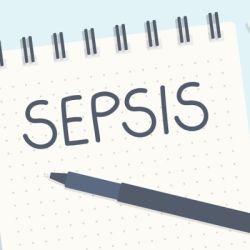… Antimicrobial Susceptibility Testing (AST) times reduced from days to hours….
Hampshire Hospitals NHS Foundation Trust (HHFT) is pioneering the use of the Accelerate PhenoTM system from Accelerate Diagnostics, Inc., (Accelerate Diagnostics) a leading in vitro diagnostics company, to speed up and improve the diagnostic outcome of antibiotic treatment. The system identifies the antibiotic that will best treat a blood stream infection in a matter of hours rather than days via conventional methods. The solution is being used in conjunction with other innovative technologies and workflows at the Trust to improve outcomes for patients with sepsis (septicaemia) and to avoid inappropriate antibiotic use. The introduction of the Accelerate PhenoTM system has reduced the Antimicrobial Susceptibility Testing (AST) result from 44.26 hours to 6.65 hours according to the Trust.
HHFT is the first NHS Trust to adopt the Accelerate PhenoTM system from Accelerate Diagnostics. In its efforts to improve diagnostic certainty, the Trust reviews its Standard of Care (SoC) constantly and, among other improvements, it explores the adoption of the latest technologies. The Accelerate PhenoTM system identifies pathogens associated with life-threatening, bloodstream infections such as sepsis and provides guidance on the antibiotics most effective against them. Conventional methodology can take up to two days to identify a pathogen and three days to provide the antibiotic results.
The microbiology department at the Trust has combined the Accelerate PhenoTM system with enhanced clinical pathways and a multi-disciplinary, trust-wide approach, to showcase best practice, targeted antibiotic therapy for sepsis patients.
The benefits of this enhanced, pioneering approach include:
- Overall improvement in quality of care for
sepsis patients
- Reduced use of inappropriate antibiotics
- Improved infection control measures
- Overall reduction in drug costs
- Reduction in risk of antimicrobial
resistance
Alex Whitfield, chief executive of Hampshire Hospitals, which runs Basingstoke and North Hampshire Hospital, Royal Hampshire County Hospital, in Winchester, and Andover War Memorial Hospital, said: “We are thrilled to be the first hospital in the UK to take on this new method of diagnostics as it is just one of the ways we are striving to always deliver the best possible care to our patients.”
“As the NHS turns 70 this year, it’s remarkable to think how far technology has come to enable our staff to make life changing and lifesaving decisions every day. Technology and innovation play a huge part in the NHS, and I am exceptionally proud of our team for being part of this and for being pioneers in their field.”
Dr Nicki Hutchinson, consultant microbiologist & medical director family and clinical support services, HHFT said, “The Accelerate analyser system uses novel technology that allows us to ensure our sickest patients, those with septicaemia, are on the right antibiotic treatment up to 1.5 days sooner than current conventional laboratory methods. In 105 patients there were 80 clinical interventions and some patients had multiple interventions. Where interventions took place, treatment could be optimized early by adjusting the appropriate antibiotics or omitting unnecessary antibiotics or switching to oral therapy. This not only helps save lives, it can speed recovery and importantly, by early detection, help us in reducing the spread of multi drug resistant organisms.
The Microbiology and Infection department at HHF has a reputation of being early adopters of innovative technology that improves patient care and this reflects the Trust’s ethos of encouraging excellence and continual service improvement.”
Dr Nick Cortes, consultant microbiologist & clinical lead, microbiology and infection sciences, HHFT & honorary senior clinical lecturer, University of Southampton Medical School added, “The Accelerate analyser allows us to manage blood stream sepsis (septicaemia) more accurately and rapidly. Patients admitted with sepsis are given a range of antibiotics and have a blood test called a blood culture. We incubate their blood at 37 degrees to see if bacteria grows – if it does, this confirms bacterial septicaemia. Once the bacteria grows, however, we still need to identify what organism it is (as severity and the location of infection vary by organism) and which specific antibiotics will kill that infecting organism: on average this takes nearly 48 hours. These are the key results that help us treat the patient with sepsis. However, with the Accelerate analyser, we will have these results in around 6-7 hours, around one and a half days earlier than usual! This brings important benefits to patients: we will be able to get their exact diagnosis earlier, be able to investigate the root cause of their septicaemia more accurately and importantly get them onto the specific antibiotics they need, sooner. The net benefit is more targeted, accurate treatment for sepsis, which will lead to better outcomes for this serious disease.”
Steve Holland, UK managing director, Accelerate Diagnostics commented, “For patients with sepsis, time is critical. Accelerate Diagnostics provides an effective diagnostic solution, producing fast, actionable and definitive results for patients with sepsis. Our innovative and collaborative work with the microbiology team at the Hampshire NHS Hospitals Foundation Trust enables clinicians to make faster, targeted therapy decisions for the optimal treatment of sepsis and other bacterial infections, thereby improving patient outcomes.”



















